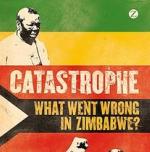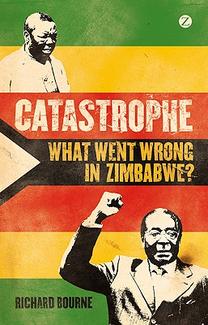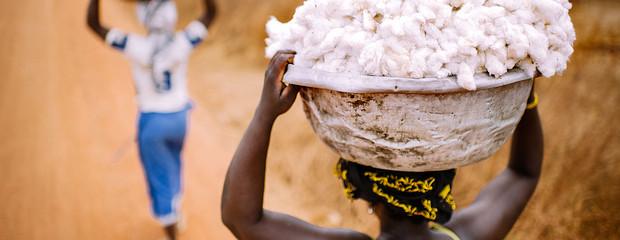What went wrong in Zimbabwe, and what next? – By Richard Bourne

 It is clear that Zimbabwe is moving into a post-Mugabe phase. The 87 year old leader, who has dominated his country since it achieved recognised independence in 1980, may still be president. But no one knows for how much longer. He is being treated for pancreatic cancer and many of his colleagues from the 1970s are dying off, like Vice President Joseph Msika and his sister Sabina, who died last year. In his own party, ZANU-PF, there is an ill-disguised succession struggle. In his coalition partners, the much harassed MDC, and the surrounding region, there is some careful positioning going on.
It is clear that Zimbabwe is moving into a post-Mugabe phase. The 87 year old leader, who has dominated his country since it achieved recognised independence in 1980, may still be president. But no one knows for how much longer. He is being treated for pancreatic cancer and many of his colleagues from the 1970s are dying off, like Vice President Joseph Msika and his sister Sabina, who died last year. In his own party, ZANU-PF, there is an ill-disguised succession struggle. In his coalition partners, the much harassed MDC, and the surrounding region, there is some careful positioning going on.
This is why it is time to review the history of a country which was called Rhodesia for some 90 years, and only Zimbabwe for the last 30. Far too much comment in recent years, as catastrophe has piled on disaster, and disaster has emerged from crisis, has been focused on Robert Mugabe. Whereas Lord Carrington and Ian Smith hoped for “Anyone but Mugabe” in the outcome of the Lancaster House talks in 1979 and the elections of 1980, the facile view has gained credence that it is “All about Mugabe”.
In “Catastrophe: what went wrong in Zimbabwe?“ published by Zed Books next month [11 August] I am challenging this view. This is important, for if a post-Mugabe nation is to live up to the hopes held after the elections of 1980 and then so cruelly dashed, there must be greater understanding of the issues and errors which, culminating in this century, have led to a collapse in life expectancy, large-scale emigration, dependence on food aid for a country which was a major agricultural exporter, economic decline, insecurity, violence, human rights abuse, and misrule of law.
One issue is to recognise the special nature of ZANU-PF, the self-styled exclusive liberation movement. Although it is part of a family along with ruling parties in Namibia, Angola and Mozambique – South Africa’s ANC, with roots in the early 20th century is rather different – it is also distinct. Whereas the MPLA in Angola, SWAPO in Namibia, the ANC, UNIP in Zambia and Joshua Nkomo’s ZAPU in Zimbabwe were backed by the Soviet Union, ZANU, which had broken away from ZAPU, was supported by China. Its Marxism was different, ruthless, and stressed peasantry-based revolution. This was a party influenced by a Chinese communist party which cared little for the huge loss of life in the Great Leap Forward, which saw the putting-down of protest in Tianenman Square as a mere hiccup on the road to enormous enrichment, and finds inspiration and investment from an emerging superpower. Realism requires a recognition that ZANU-PF is unlikely to die with Mugabe, and that some ZANU-PF persons and ideas could form part of a future MDC-led coalition.
A second issue is that today’s Zimbabwe has a very violent history, of which ZANU crimes – as in the massacre of 20,000 in the Gukhurahundi in Matabeleland in the 1980s – are only a part. Rhodesian forces in the civil war committed ghastly atrocities. Violence in the townships prior to independence, with “sell-outs” victimised and sometimes murdered, was frequent. Mrs Sekai Holland, the MDC representative in the coalition’s national organ for healing and reconciliation, argues that around a million Zimbabweans are living traumatised, as former torture victims and perpetrators, from horrific events over half a century. The national organ, ineffective compared with South Africa’s Truth and Reconciliation Commission, has yet to make much impact, but it might in future. Depoliticising the police and the justice system, and restoring a reliable rule of law, are other requirements.
A third issue which bedevils Zimbabwe’s economic chances remains – not only the ownership, but the use of agricultural land. Following the chaotic occupations in the early years of this century there has been some recovery of output, but the coalition has yet to undertake the land audit which was part of the “Global Political Agreement” of September 2008; ZANU-PF cronies, including Mugabe’s family, have been handed formerly white-owned farms but many of the “new commercial farmers” are not really interested, and the small-scale farmers are having a tough time to afford the inputs they need. Land grabs in Rhodesia/Zimbabwe are nothing new – from Cecil Rhodes to the UDI era, and to the present century – but effective use, assured property rights, and technical back-up are pre-requisites for recovery. Although the United Kingdom will resent support for compensation for former white farmers, this will be a bullet it may need to bite as part of a comprehensive agricultural development strategy.
A fourth issue which has a long history, and is still unresolved, concerns Zimbabwe’s relation with its powerful neighbour, South Africa. It was Cecil Rhodes, as Prime Minister of the then Cape Colony, who instigated the white occupation of the territory named after him. In the 1920s it was only the result of a white referendum which stopped it from becoming a South African province. Currently a large number of Zimbabwean exiles are living in South Africa, and President Zuma has begun to tighten the pressure on Mugabe, in part because of the Africa-wide impact of events in North Africa. How far is South Africa now prepared to intervene in Zimbabwe, as apartheid South Africa did to force Ian Smith to the negotiating table in the 1970s? How far will South African business invest in Zimbabwean recovery, especially if ZANU-PF’s 51 per cent indigenisation law remains operational? Can a post-Mugabe government retain its independence?
Most in the international community are signed up to the roadmap set out by SADC and President Zuma; this will require a new constitution, approved by a referendum, with a cleaned-up electoral register, and elections in 2012 or conceivably in 2013. In the meantime Tsvangirai is seeking to look more prime ministerial, as Mugabe appears to be physically failing. The general expectation is that, in a clean election – which would be unprecedented for Zimbabwe – Tsvangirai’s larger MDC faction would win. The sequence could be upset by a sudden death or incapacity for Mugabe.
But what is really obvious is that, however bad Mugabe or his decisions may have been, and they were, his departure will not open the doors to paradise for Zimbabweans. The sheer amount of effort and time it will take to rebuild what Julius Nyerere described in 1980 as “the jewel of Africa” cannot be overestimated.
By Richard Bourne – Senior Research Fellow, Institute of Commonwealth Studies. Catastrophe: What Went Wrong in Zimbabwe will be launched at the Commonwealth Club, London on Sept 8th, 2011.






Blithely accusing the Rhodesian forces of ‘ghastly atrocities ‘ is utterly unsubstantiated. Justify that comment or withdraw it.